Did you know that over 6 million businesses in the United Kingdom have their own unique Tax Identification Number? These essential identifiers, commonly referred to as TINs, are used by tax authorities to manage the taxation of both individuals and businesses. But what exactly is a Tax Identification Number, and how do they work in the UK context?
Tax Identification Numbers, or TINs, are used for official purposes to help with the management of taxation. TINs identify taxpayers and help facilitate the administration of their national or cross-border tax affairs. These unique identifiers may be used in respect of an individual or a business such as a limited company. The term ‘TIN’ is actually fairly generic and it can refer to a variety of different types of identification numbers worldwide, including taxpayer identification numbers, social security numbers, company reference numbers, resident registration numbers, and citizen or personal identification codes or numbers.
The structure and syntax of TINs differ according to the specific national authority. Crucially, a Tax Identification Number is always unique and identifies a single individual or business entity. In the UK, the main types of tax identification numbers are the Unique Taxpayer Reference (UTR) and the Company Registration Number (CRN). We’ll explore these in more detail in the sections that follow.
Introduction to Tax Identification Numbers
The term ‘Tax Identification Number’ or ‘TIN’ is not widely used in the United Kingdom. However, when interacting with foreign businesses or authorities, particularly in the United States and European Union, there may be references to TINs. In such cases, UK companies may be asked to provide their TIN in order to conduct cross-border operations.
What is a Tax Identification Number (TIN)?
A Tax Identification Number (TIN) is a unique identifier used for official tax-related purposes. These numbers help tax authorities manage and administer the taxation affairs of individuals and businesses.
Are TINs Used by UK Companies?
While the term ‘TIN’ is not commonly used in the UK, there are two main types of unique identifying numbers that serve a similar purpose for British companies: the Unique Taxpayer Reference (UTR) and the Company Registration Number (CRN). Both of these numbers are essential and must be provided for various company administration tasks, such as annual filings.
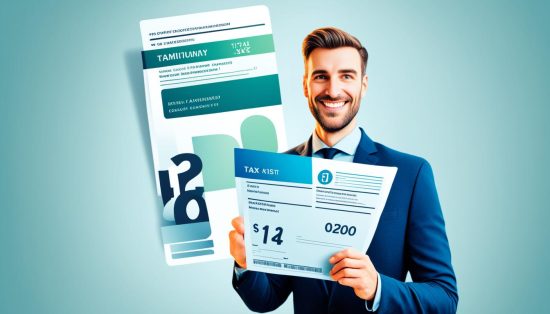
Unique Taxpayer Reference (UTR)
All companies registered in the UK are automatically issued a Unique Taxpayer Reference (UTR) by HMRC, when they are incorporated. This type of unique taxpayer reference is a unique 10 digit number that is used for purposes of Corporation Tax. The UTR will then need to be used in any correspondence with HMRC, or when submitting forms, company accounts, or paying Corporation Tax.
What is a company’s Unique Taxpayer Reference (UTR)?
The Unique Taxpayer Reference (UTR) is a unique 10-digit number assigned to every company registered in the UK. This UTR acts as the company’s primary identifier for tax purposes, enabling HMRC to track and manage the company’s tax affairs efficiently.
Obtaining and Using a UTR for Businesses
Some of the different occasions when a UTR needs to be provided include registering a company for Corporation Tax, VAT or PAYE, payment of Corporation Tax and VAT, filing annual returns, and in all other correspondence with HMRC. If the Corporation Tax UTR number has been completely lost, it is possible to request a copy from HMRC.

Company Registration Number (CRN)
The company registration number (CRN) is issued by Companies House as soon as a company has been registered. It is used to identify each limited company and verify its legal existence. The CRN is a unique combination of 8 characters, consisting of either 8 numbers or 2 letters followed by 6 numbers. This CRN is displayed on the Certificate of Incorporation and all official correspondence from Companies House.
Although the CRN is not primarily used for taxation purposes, it may also be considered a Tax Identification Number, as it needs to be quoted for official purposes, some of which can relate to tax. The CRN needs to be provided in respect of correspondence and filing of information with Companies House, and may also be requested by a variety of third parties such as financial institutions or trading partners.
Is My Company Number the Same as My Tax Number?
The company registration number (CRN) and the Unique Taxpayer Reference (UTR) are two distinct identification numbers used for different purposes in the UK. The CRN is issued by Companies House to identify and verify the legal existence of a limited company, while the UTR is assigned by HMRC for tax purposes, such as filing tax returns and paying Corporation Tax. Although they serve different functions, both the CRN and UTR may be requested in various business transactions and official filings.
What Is Tax Identification Number?
Tax Identification Numbers, or TINs, are used for official purposes to help with the management of taxation. These unique identifiers may be used in respect of an individual or a business such as a limited company. In the UK, the main types of tax identification numbers are the Unique Taxpayer Reference (UTR) and the Company Registration Number (CRN). The UTR is used primarily for taxation purposes, while the CRN is used to identify each limited company and verify its legal existence, although it may also be considered a Tax Identification Number.
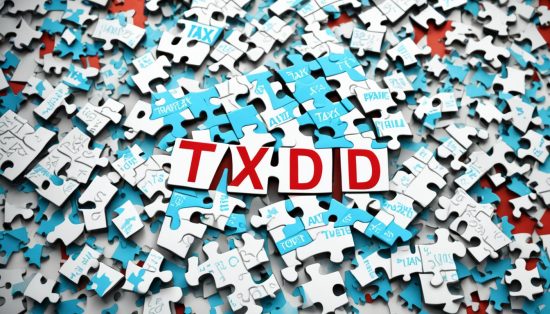
TINs and Company Directors
As well as being used by UK companies, separate tax identification numbers (TINs) identify individual company directors. All directors will have a National Insurance Number, which is a unique personal reference number that links individuals in the UK with their tax records, including personal National Insurance Contributions, social security benefits, tax payments, and student loans.
National Insurance Number
This TIN is made up of 2 letters, 6 numbers, and a final letter. It is usually provided to UK residents 3 months before their 16th birthday. The National Insurance Number is used by a variety of organisations for official tax purposes, including HMRC, employers, government departments, and financial service providers.
How Can I Find My National Insurance Number?
If the National Insurance Number is completely lost, it is possible to retrieve it by filling in form CA5403 and sending it to the address on the form, or by contacting the National Insurance numbers helpline.

Tax Identification System in the UK
In the UK, the Unique Taxpayer Reference (UTR) acts as a unique identifier, enabling tax authorities to track and monitor the tax accounts of the population. This number interfaces individuals and businesses with their tax affairs, acting as their unique identifiers in the eyes of HMRC.
The Role of the Unique Taxpayer Reference (UTR)
The UTR is a 10-digit number issued to any individual or business required to submit a tax return. Self-employed individuals, sole traders, and UK-registered companies particularly need the UTR. To obtain a UTR, one must register for self-assessment with HMRC and supply the necessary personal and business information. HMRC also assigns a UTR to limited companies upon their incorporation and registration for Corporation Tax. If a UTR has been lost, it can be retrieved by contacting HMRC.
Registration process for individuals
To obtain a UTR, individuals must register for self-assessment with HMRC and provide the necessary personal details. This process ensures that HMRC can issue a unique identifier to track the individual’s tax affairs effectively.
HMRC automatically assigns a UTR to limited companies upon their incorporation and registration for Corporation Tax. This unique number allows HMRC to monitor the company’s tax obligations and submissions, such as filing annual returns and paying Corporation Tax.
How Can I Find my Unique Taxpayer Reference?
If you have lost or misplaced your UTR, you can contact HMRC to retrieve it. They will be able to provide you with your unique 10-digit identifier, which is essential for managing your tax responsibilities.
Under Which Circumstances May a Tax Identification Number Not Be Issued?
In certain circumstances, HMRC may not issue a UTR. This could be the case if an individual or business is not required to submit a tax return or if they are not registered for self-assessment or Corporation Tax.
Company Registration Number (CRN)
In addition to the UTR, the Company Registration Number (CRN) is another important identifier for UK businesses. The CRN is issued by Companies House and is used to verify the legal existence of a limited company.
When Will I Need to use my Company Registration Number?
The CRN must be used in various official interactions, such as filing annual returns with Companies House, opening a business bank account, and when engaging with third-party organisations.
How Can I find my Company Registration Number?
The CRN can be found on the Certificate of Incorporation issued by Companies House when a company is first registered. It can also be retrieved by contacting Companies House or checking the company’s official records.
Managing Tax Identification Numbers
Navigating the intricacies of tax identification numbers in the UK can be a complex undertaking. Fortunately, professional assistance from accountants or tax advisors can prove invaluable in this arena. These experts can guide you through the process of obtaining and managing your UK tax identification number, ensuring your ongoing tax obligations are met.
Obtaining and Managing Your UK Tax Identification Number
Professional services exist to help you acquire and manage your UK tax identification number, from applying for a Unique Taxpayer Reference (UTR) to overseeing its long-term administration. These specialists can walk you through the necessary steps, whether you’re a self-employed individual, sole trader, or UK-registered company. Their expertise extends beyond the initial application, allowing them to effectively manage your tax identification number on an ongoing basis.
Ensuring Business Tax Compliance
Beyond just managing your tax identification number, professional advisors can also play a crucial role in
ensuring your business’s compliance with UK tax regulations
. They can provide comprehensive guidance on understanding and implementing the relevant tax laws, as well as staying up-to-date with HMRC’s evolving tax governance requirements. This comprehensive approach helps safeguard your business, allowing you to focus on your core operations while your tax obligations are expertly handled.
Conclusion
Tax identification numbers such as the Unique Taxpayer Reference (UTR) and the Company Registration Number (CRN) are essential for effectively managing your tax affairs in the UK. Whether you’re a self-employed individual, a small business owner, or a limited company director, understanding these numbers and how to manage them is crucial in your dealings with the UK tax authorities. However, navigating the complex web of tax laws and regulations can be a daunting task.
Fortunately, professional services are available to assist you in obtaining and managing your UK tax identification number, as well as ensuring your business remains tax-compliant. By utilising these services, you can focus on running your business while experts handle the intricate details of tax compliance on your behalf. This can provide you with peace of mind and allow you to devote more time and resources to the growth and success of your enterprise.
In summary, tax identification numbers are a fundamental aspect of doing business in the UK, and managing them effectively is crucial for maintaining tax compliance and avoiding potential issues with the tax authorities. By partnering with professional services, you can streamline this process and ensure your business remains on the right side of the law, allowing you to concentrate on the core activities that drive your success.
FAQ
1. What is a Tax Identification Number (TIN)?
Tax Identification Numbers, commonly referred to as TINs, are used for official purposes to help with the management of taxation. TINs identify taxpayers and help facilitate the administration of their national or cross-border tax affairs.
2. Are TINs Used By UK Companies?
Yes, in the UK, the main types of tax identification numbers are the Unique Taxpayer Reference (UTR) and the Company Registration Number (CRN).
3. What is a company’s Unique Taxpayer Reference (UTR)?
The Unique Taxpayer Reference (UTR) is a unique 10 digit number issued by HMRC when a company is incorporated. It is used for purposes of Corporation Tax and needs to be provided in correspondence with HMRC.
4. Is My Company Number the Same as My Tax Number?
No, the Company Registration Number (CRN) and the Unique Taxpayer Reference (UTR) are separate identifiers. The CRN is used to identify each limited company and verify its legal existence, while the UTR is used primarily for taxation purposes.
5. What is a National Insurance Number?
All directors will have a National Insurance Number, which is a unique personal reference number that links individuals in the UK with their tax records. It is made up of 2 letters, 6 numbers, and a final letter.
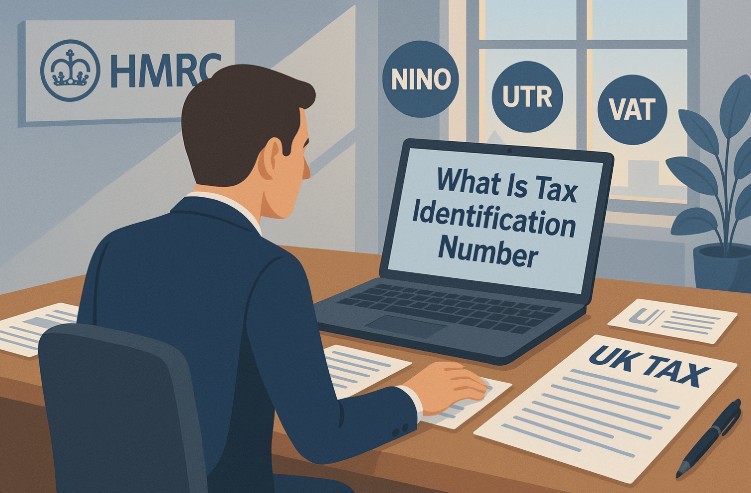













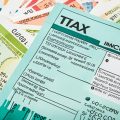


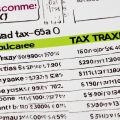


No Comments
Leave a comment Cancel